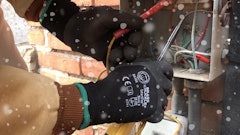It would take at least 25 years for Wisconsin taxpayers to break even on Gov. Scott Walker's incentives to lure Taiwanese electronics giant Foxconn to the state, according to a fiscal analysis released Tuesday.
Walker's bill would exempt construction materials from the state and local sales tax and hand the company up to $2.85 billion in tax credits based on the number of jobs generated. It also would exempt the company from a host of environmental regulations and borrow $252 million to rebuild Interstate 94 near the plant site.
The nonpartisan Legislative Fiscal Bureau's analysis of the bill found that the cost of the tax credits would exceed potential increased tax revenues by $1.04 billion at the end of fiscal year 2032-33. After that year, payments to Foxconn would end and increased tax collections would ring in at about $115 million annually. At that rate, the break-even point would come during the 2042-43 fiscal year.
The break-even point could come even later, though.
Foxconn hasn't picked a site yet but the company is eyeing an area just across the Illinois border. If 10 percent of the jobs associated with the plant go to Illinois residents, the break-even point would be pushed back to 2044-45, the analysis found. If 40 percent to 50 percent of the jobs go to out-of-state residents, the break-even point would be pushed well past 2044-45, the analysis said.
Foxconn hopes to open the plant with 3,000 workers, and critics have questioned whether the company really intends to add more employees. If employment at the facility remains close to 3,000 people, the tax benefits from the project would decline from $115 million to $27 million annually and the break-even point would come well beyond 2044-45.
In the video above, Bloomberg.com points out that Foxconn failed to deliver on the jobs/economic progress promised to Brazil government when the government lured the Taiwanese iPhone manufacturer there with an incentive package. Bloomberg.com contends that Foxconn plants operate with dramatic seasonal swings in labor demand, and the absence of suppliers to the iPhone line in Brazil left most of the significant manufacturing in Shenzhen, China, where Foxconn builds most iPhones.


















